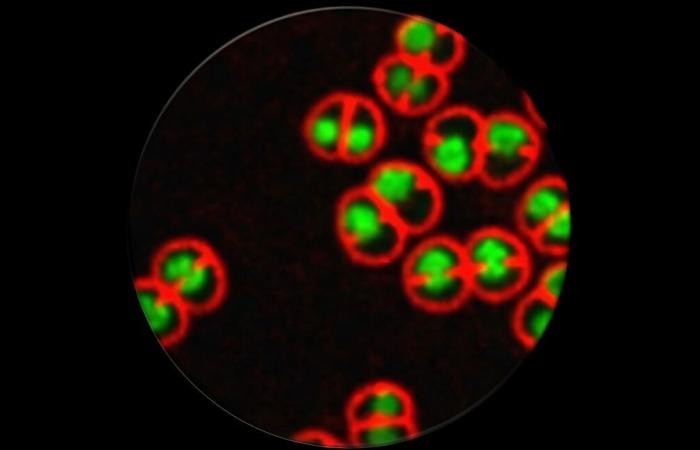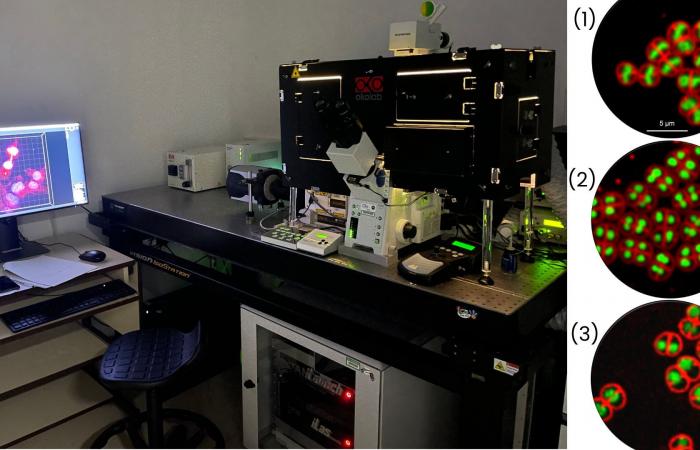A team of researchers studied Deinococcus radiodurans and revealed for the first time the nucleoid remodeling process of this bacterium, using advanced fluorescence microscopy techniques.
This remodeling is crucial for its exceptional resistance to extreme conditions such as ionizing and UV radiation, as well as prolonged drought. This discovery enriches our understanding of the survival mechanisms of this unique bacterium.
Nucleoid remodeling is a common strategy in bacteria to protect their DNA against external stresses. This process is mainly controlled by NAPs (Nucleoid Associated Proteins) proteins which interact with DNA in order to compact the genome. This compaction helps preserve the integrity of the material genetic in unfavorable conditions. In previous studies, the researchers of this team showed that the nucleoid of D. radiodurans was compact, but nevertheless dynamic to adapt to the morphology of the cell during cell cycle.
This new study examines the impact of two stresses on the morphology and compaction state of the nucleoid: exposure to UV-C rays which damages the genome, and a nutrient deficiency leading to a stationary phase which limits growth. The study also evaluates how these stresses affect the mobility of the HU protein, the main NAP of the nucleoid, to assess how it interacts with DNA.
-The study shows that nutrient and UV-C stress cause rapid compaction of the nucleoid, but by different mechanisms. HU mobility decreases in response to nutrient deficiency, while it increases under UV-C exposure. After a rapid condensation phase due to UV-C, the nucleoid slowly decompacts, allowing HU to regain its normal mobility and the nucleoid to return to its initial structure, ready for resumption of cell growth.
(1) Normal nucleoids.
(2) Compact nucleoids following nutrient deficiency.
(3) Compact nucleoids following UV-C irradiation.
© CEA
This research made it possible, for the first time, to observe in real time the nucleoid remodeling process in
D. radioduransthanks to advanced techniques of microscopy of fluorescence. This observation direct enriches our understanding of the resistance mechanisms of this exceptional bacterium.
References:
Vauclare P, Wulffelé J, Lacroix F, Servant P, Confalonieri F, Kleman JP, Bourgeois D and Timmins J.
Stress-induced nucleoid remodeling in Deinococcus radiodurans is associated with major changes in Heat Unstable (HU) protein dynamics.
Nucleic Acids Res 2024.







